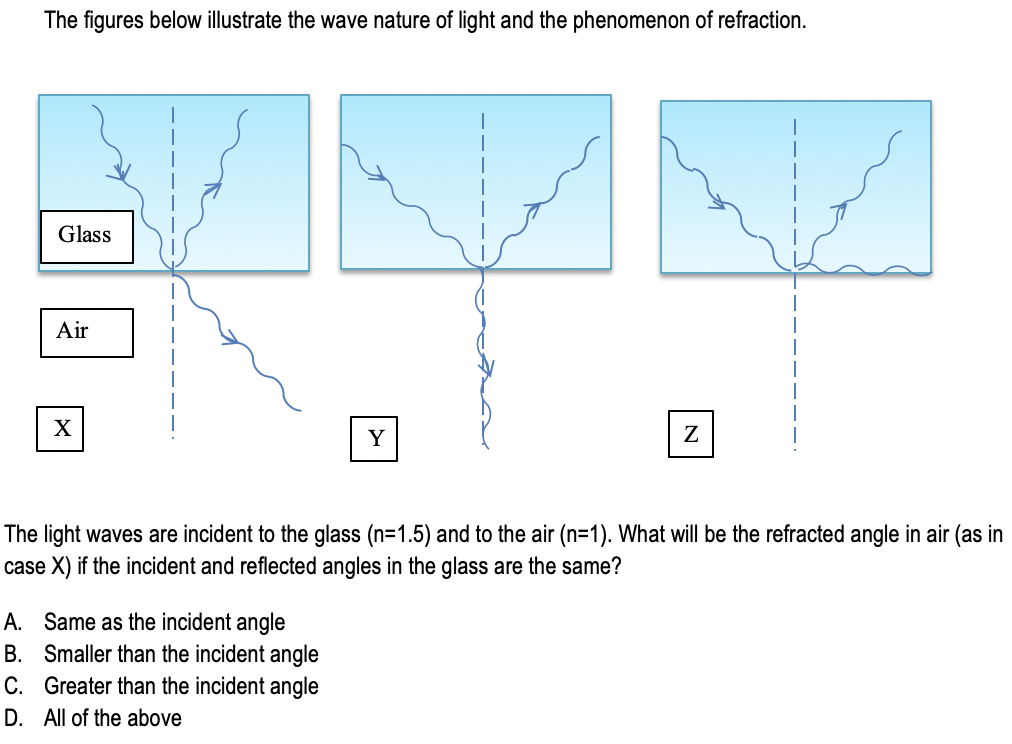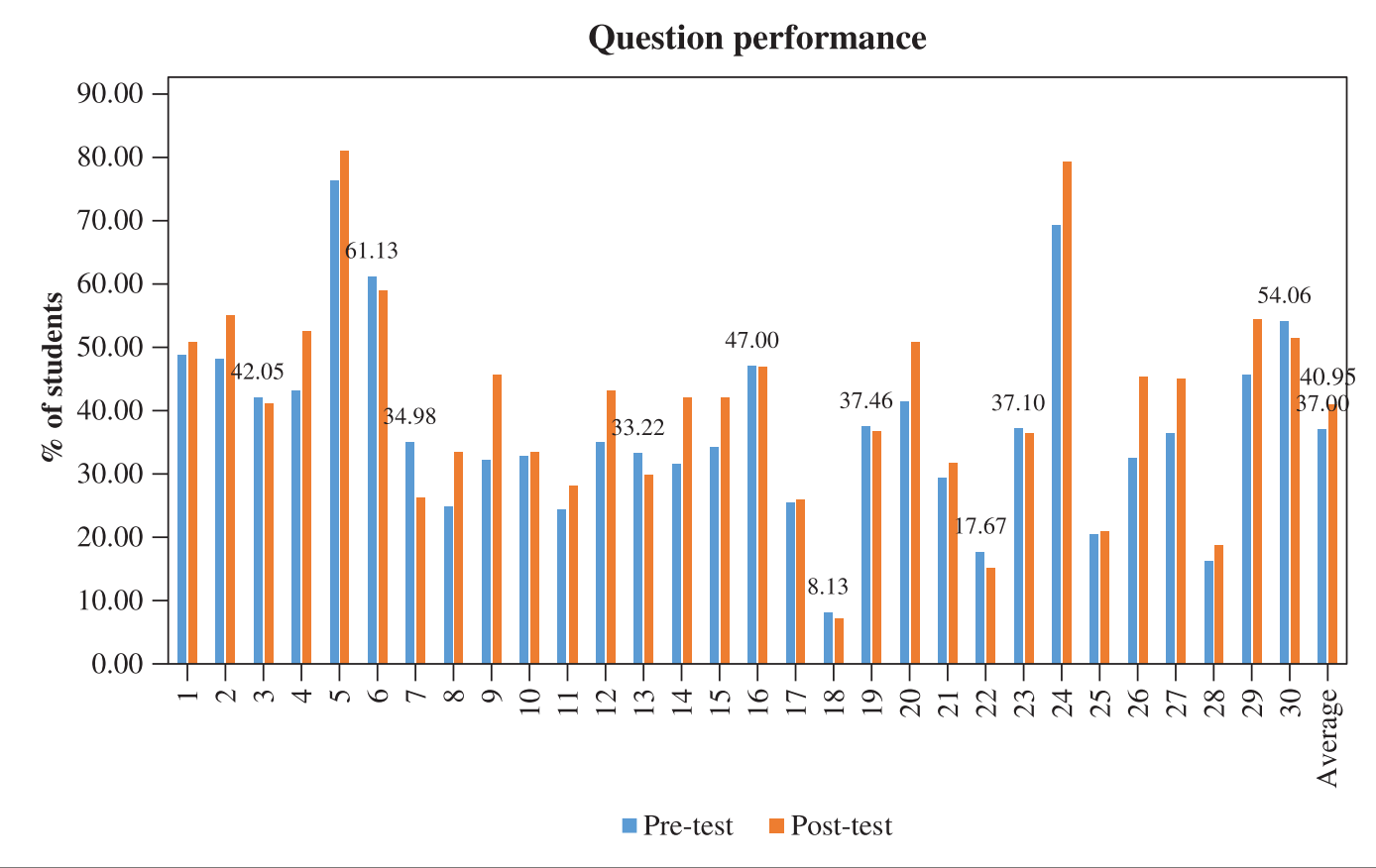Developed by Kizito Ndihokubwayo, Jean Uwamahoro, Irénée Ndayambaje and Michael Ralph
| Purpose | To measure students’ conceptual understanding of light phenomena. |
|---|---|
| Format | Multiple-choice |
| Duration | 40 min |
| Focus | Waves / Optics Content knowledge (reflection, refraction, Snells law, wavelength and frequency, light scattering, electromagnetic spectrum, the human eye) |
| Level | Intro college, High school |


more details
This is the second highest level of research validation, corresponding to at least 5 of the validation categories below.
Research Validation Summary
Based on Research Into:
- Student thinking
Studied Using:
- Student interviews
- Expert review
- Appropriate statistical analysis
Research Conducted:
- At multiple institutions
- By multiple research groups
- Peer-reviewed publication
An initial set of questions was formulated from the literature, the Rwandan competence-based curriculum (CBC) textbooks, daily experiences, and students’ group discussions. The questions were given to students and feedback collected. Based on this, the final set of 30 questions was determined. The questions were reviewed by experts. The developers determined that the test-retest reliability was adequate. The test was administered at eight different institutions in Rwanda. The LPCA has been given to over 300 students and the results are published in one peer-reviewed publication.
References
- K. Ndihokubwayo, J. Uwamahoro, I. Ndayambaje, and M. Ralph, Light phenomena conceptual assessment: an inventory tool for teachers, Phys. Educ. 55 (3), (2020).
- P. H. Santoso, E. Istiyono, Haryanto, and H. Retnawati, Validating light phenomena conceptual assessment through the lens of classical test theory and item response theory frameworks, Phys. Educ. 59 (2), 025002 (2024).
We don't have any translations of this assessment yet.
If you know of a translation that we don't have yet, or if you would like to translate this assessment, please contact us!
| Typical Results |
|---|
During the implementation of this test, the developers sampled eight schools from rural and urban settings in Rwanda. Results are for 244 senior (grade 11) students. The mean pre-test score was 37.00% with a standard deviation of 10.65. The post-test mean score was 40.95% with a standard deviation of 11.17. The minimum score for the pre-test and post-test was 10.00% and 13.33% respectively, while the maximum score for both was 76.67%. So, although the learning gain of 3.95% made a statistically significant difference (p < 0.05) after teaching, the effect of this difference was found to be small (D = 0.29) (Ndihokubwayo et al. 2020). Figure 1. Overall performance of students on each LPCA question on the pre and post-test.
|
The most recent version of the LPCA, released in 2020, is version 1.




